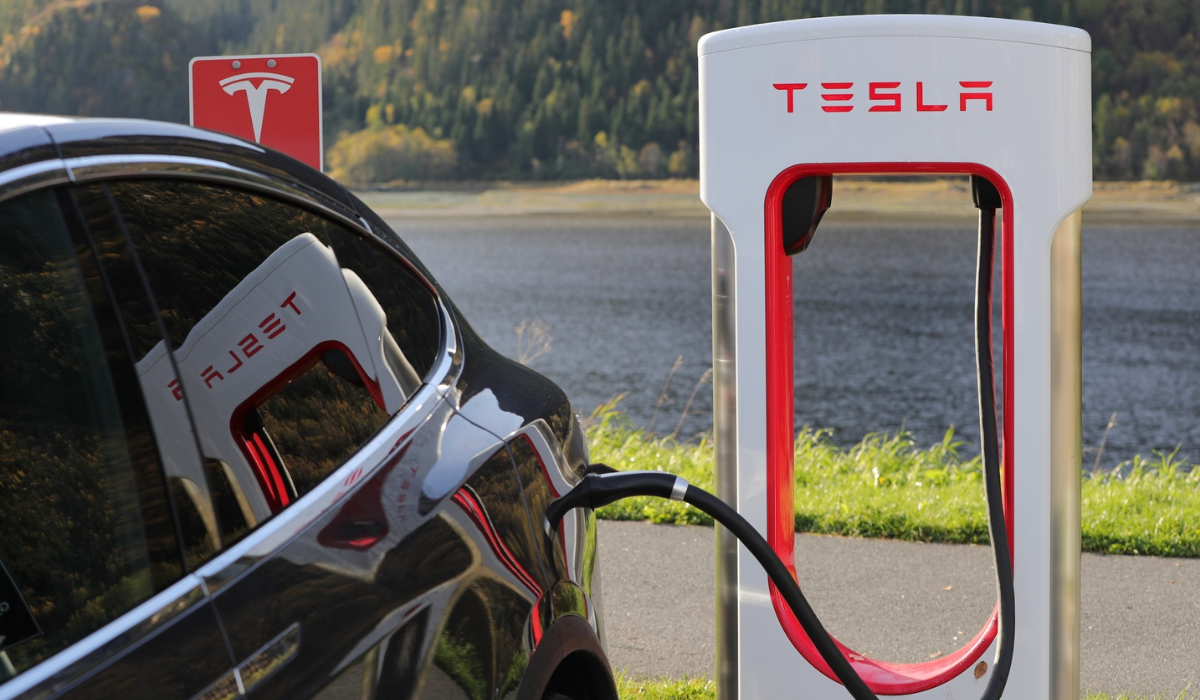The arrival of Tesla in India. Tesla, the prominent American electric vehicle (EV) manufacturer, has been the focus of considerable speculation regarding its potential entry into the Indian market. As India progressively transitions towards sustainable transportation options, the prospect of Tesla’s launch has garnered significant interest from both consumers and industry experts. With electric vehicles emerging as a central theme in global dialogues on climate change and carbon emission reduction, Tesla’s foray into India is anticipated to be a pivotal event in the nation’s automotive sector.
Reasons Behind Tesla’s Interest in India
Several factors are motivating Tesla’s interest in the Indian market. The Indian government’s initiatives promoting cleaner energy and electric mobility, supported by various incentives and subsidies, have rendered the country an appealing destination for electric vehicle manufacturers. Additionally, the expanding middle-class demographic in India represents an untapped market for premium electric vehicles. As more consumers seek environmentally friendly alternatives, Tesla’s reputation and advanced technology are likely to resonate with Indian buyers.
Tesla’s commitment to sustainability and innovation is in harmony with the global trend towards electric vehicles, and India is progressively embracing EVs, bolstered by a growing network of electric car charging stations. Renowned for its luxury electric models such as the Model 3 and Model S, Tesla could significantly influence the development of the EV landscape in India.
Obstacles Tesla May Encounter in India
Premium Pricing of Vehicles
- Tesla’s offerings are typically viewed as high-end products, which may restrict access for a substantial segment of the Indian market that prioritizes cost-effectiveness.
Import Tariffs and Taxes
- Elevated import tariffs on vehicles could further increase the cost of Tesla cars, potentially diminishing their attractiveness to budget-conscious consumers in India.
Insufficient EV Charging Infrastructure
- Although significant progress has been made in major urban centers, rural and suburban regions continue to experience a shortage of charging stations, which may impede the broader acceptance of electric vehicles (EVs).
Financial Investment for Manufacturing Facilities
- The establishment of a manufacturing facility in India necessitates considerable financial investment, and there may be obstacles related to the development of a local supply chain and the scaling of production capabilities.
Absence of Local Supply Chain for EV Parts
- Tesla might encounter challenges in procuring essential components and raw materials from local sources, potentially leading to increased expenses and delays in the manufacturing timeline.
Consumer Education and Awareness
- In spite of the rising interest in electric vehicles, a significant number of consumers remain uninformed about the advantages of EVs, which could hinder the widespread adoption of Tesla’s offerings.
Regulatory and Administrative Challenges
- Tesla may face intricate regulatory issues, including the need to navigate India’s varied and often complex compliance requirements for foreign enterprises.
Domestic Competition
- Established local EV manufacturers, such as Tata Motors and Mahindra Electric, are already present in the market, and Tesla will need to compete with these indigenous brands in terms of pricing and availability.
Recent Updates: Tesla’s Progress in India
Tesla is making big moves in India. There are some exciting updates about their plans to enter the market. Here’s what’s happening:
- Manufacturing Plans: Tesla is talking to the Indian government about building a factory in the country. This is important because it can help lower production costs and make their vehicles cheaper for buyers in India. They are also looking for local suppliers to make the production process smoother. If this factory happens, it would support India’s goal of promoting local manufacturing and job creation. Tesla’s factory could help boost the electric vehicle market in India.
- Charging Stations: Tesla plans to set up charging stations all over India to help more people use electric cars. They want to install Supercharger stations in big cities like Delhi, Mumbai, and Bengaluru. These stations will let Tesla owners charge their cars quickly, easing worries about running out of power. More charging options will make it easier for people to buy electric cars, especially with the government’s support for building this infrastructure.
- New Pricing Strategy: Tesla is working on making its cars more affordable for Indian customers. They are looking into launching budget-friendly models, like the Model 2, which could cost less than the current Model 3. This move is aimed at middle-class buyers who want electric vehicles. Plus, the Indian government offers tax breaks for electric cars, which can make it cheaper to own a Tesla.
Tesla’s Influence on the Indian Electric Vehicle Market
The introduction of Tesla into the Indian market is poised to create significant waves within the automotive sector. The arrival of such a prominent global brand could expedite the acceptance of electric vehicles in India. Also compelling other manufacturers to innovate and launch their own EV offerings. Additionally, this development may encourage the government to enhance its electric vehicle infrastructure, which includes increasing the number of charging stations and providing additional incentives for consumers purchasing EVs.
Moreover, Tesla’s presence could result in job creation across various sectors, including manufacturing, research and development, sales, and after-sales support. This would contribute to the further development of the electric vehicle ecosystem, ultimately benefiting the Indian economy over time.
What Lies Ahead for Tesla in India?
Tesla’s entry into India has the potential to reshape the nation’s electric vehicle landscape. The brand’s cutting-edge technology, encompassing autonomous driving features and energy-efficient battery solutions, could establish new standards within the automotive field. As the demand for electric vehicles continues to rise, Tesla’s entry may ignite competition and foster innovation, ultimately serving the interests of Indian consumers. The company’s commitment to sustainability and environmentally friendly practices aligns well with India’s climate objectives.
Although the electric vehicle market in India is still emerging, Tesla’s involvement may not instantly make electric cars ubiquitous. However, it will undoubtedly accelerate the sector’s expansion. As more manufacturers enter the market and consumers become increasingly aware of the long-term advantages of electric vehicles. Tesla could eventually achieve widespread recognition in India.
Also Read: The Rise of Grok AI 3: Elon Musk’s Bold Move in the Artificial Intelligence Race
Conclusion
Tesla might soon join India’s car market, and this could really change things, especially for electric cars. There are some big challenges ahead. High import taxes make cars expensive, and there aren’t enough charging stations. Plus, local companies are tough competition. But Tesla has a strong brand and cool tech, which could help it succeed in India.
People in India are getting more aware of how bad regular cars can be for the environment. The government also wants to promote cleaner energy. This makes it a good time for Tesla to expand. The rising middle class is excited about new technology, so the demand for electric cars is growing.
Tesla will need to tackle these challenges. But if it can, it might speed up electric car use in India. With some smart investments in building cars in India and improving charging options, Tesla could play a big role in changing the car scene here.
If Tesla does well in India, it not only strengthens its place as a leader in electric vehicles but could also inspire other global companies to enter this market. The path won’t be easy, but making it through could be a big win for both Tesla and India.
FAQs
On what level does Tesla impact India’s climate agenda?
Tesla blends with India’s environmental aspirations and climate mitigation goals. Tesla presents an alternative to conventional internal combustion engine cars-fairly prevalent in urban India. Electric vehicles will find efficient traction in reducing air pollution and minimize greenhouse gas emissions, thereby casting India closer to achieving climatic goals.
Who besides Tesla has been active in the electric vehicle market in India?
While the name of Tesla looms large, it will face ruthless competition from domestic mainstream players like Tata Motors and Mahindra Electric, which already sell electric cars in India. Both have a distinct edge over Tesla regarding local knowledge, which allows them to price their EVs relatively lower.
What could technically be the predictions for Tesla’s future in India?
Tesla’s long-term prospects are conditioned by the company’s ability to negotiate a cocktail of pricing and infrastructure shortages . Innovations, competitive strategy driven by technology, sustainability, and ingenuity may combine to position Tesla to emerge as a formidable player.
What specific date is Tesla likely to penetrate India?
Though the exact dates are presumed not yet to be finalized. Tesla is, however, actively working to build its factory and charging infrastructure. Depending upon how things pan out regarding logistics, regulatory, and infrastructural issues, the timeline for launching Tesla would be decided.
How is Tesla likely to transform the Indian automobile industry’s overall outlook?
The entry of Tesla into India is likely to further amp up electric vehicle innovation, setting into motion great competition and lowering car prices. This, in turn, will help accelerate the country’s shift towards electric mobility and contribute to India’s environmental goals.








